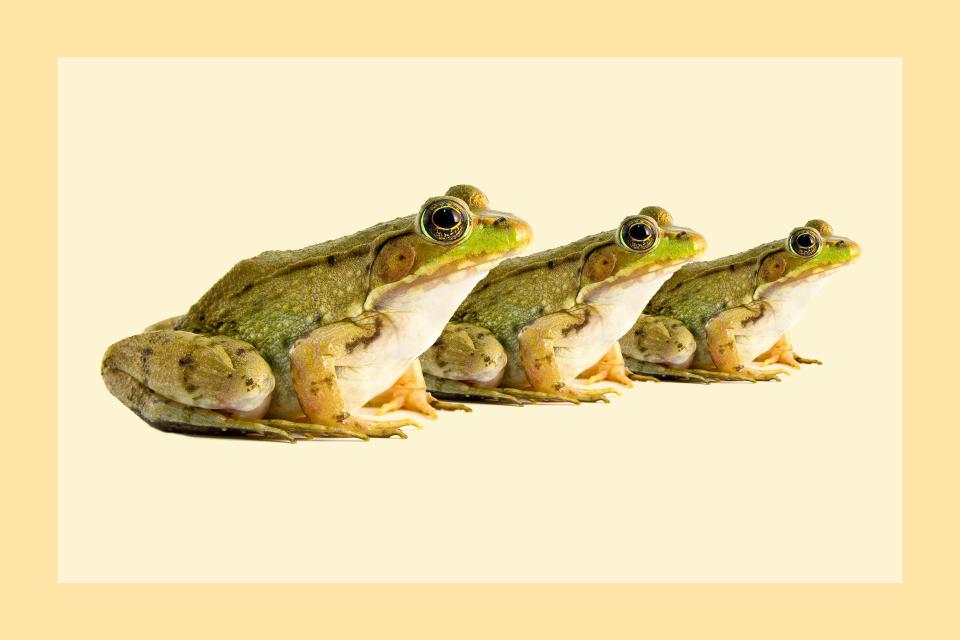France's Love for Frog Legs Is Causing a Potential Environmental Disaster on the Other Side of the World
It's time to say non merci to cuisses de grenouille.

Getty
The French love their frog legs. Apparently, a little too much.
Eating frog legs has been a French pastime for hundreds of years, beginning with a few ingenious monks who had the Church classify them as fish rather than meat, bypassing religious rules of only eating meat on certain days. However, now, estimates state that French diners consume some 4,000 tons of frog legs a year, putting a few species of amphibians in peril.
A group of more than 500 environmentalists, including participants from the French nonprofits Robin des Bois and Vétérinaires pour la Biodiversité, along with the German charity Pro Wildlife, delivered an open letter to French President Emmanuel Macron, warning him that several species of frogs are facing extinction due to the overconsumption of their meat.
According to the letter, 4,070 tons of frozen frogs’ legs are imported into the European Union every year, equivalent to 80 million to 200 million frogs. France is the largest importer, bringing in more than 3,000 tons annually. And, as the letter states, the vast majority are "sourced from wild populations, in particular from Indonesia, Turkey, and Albania. Frogs’ legs are also imported from Vietnam, but these originate from farms that also have a negative impact on the wild frog population."
Related: 11 French Dishes Everyone Should Know How to Cook, According to Chefs
Specifically, the letter notes that recent field studies show that several species are experiencing a "significant" decline, including the fanged river frog, which has nearly "disappeared from commercial imports to France," along with what were once common species, including the crab-eating frog and the rice-field frog, which are "already in decline due to intense commercial harvests and exports for many years." Protecting frogs, the researchers add, isn't just about saving the species, but rather, about the future for humans too, as they play a "crucial role" in local ecosystems, which are being upended due to consumption.
"Veterinarians have joined this initiative in large numbers because they are both sensitive to the cruelty that prevails in this market and concerned about the ecological imbalances caused by the collapse of amphibian populations," Alain Moussu, the president of the Vétérinaires pour la Biodiversité, said. Moussu added that the overfarming will cause “...subsequent risks for human health linked with the increasing mosquitos’ populations" once the frogs disappear.
As for what the group hopes to see happen, it's simple: they want the same protections for frog species across the world as those given to frogs in the European Union.
Related: Wildlife Group Says We're Eating Too Many Frog Legs
“It’s absurd: the natural frog populations here in Europe are protected under EU law. But the EU still tolerates the collection of millions of animals in other countries – even if this threatens the frog populations there. This is not at all in line with the EU’s recent biodiversity strategy.” Dr Sandra Altherr, head of science at Pro Wildlife, added in the letter. “Frog populations native to France and the EU are protected against commercial exploitation; the EU should no longer permit the overexploitation of frog species and populations in the major supplying countries to not only threaten the targeted species and populations but also the respective ecosystems and their services for humans."
For more Food & Wine news, make sure to sign up for our newsletter!
Read the original article on Food & Wine.


